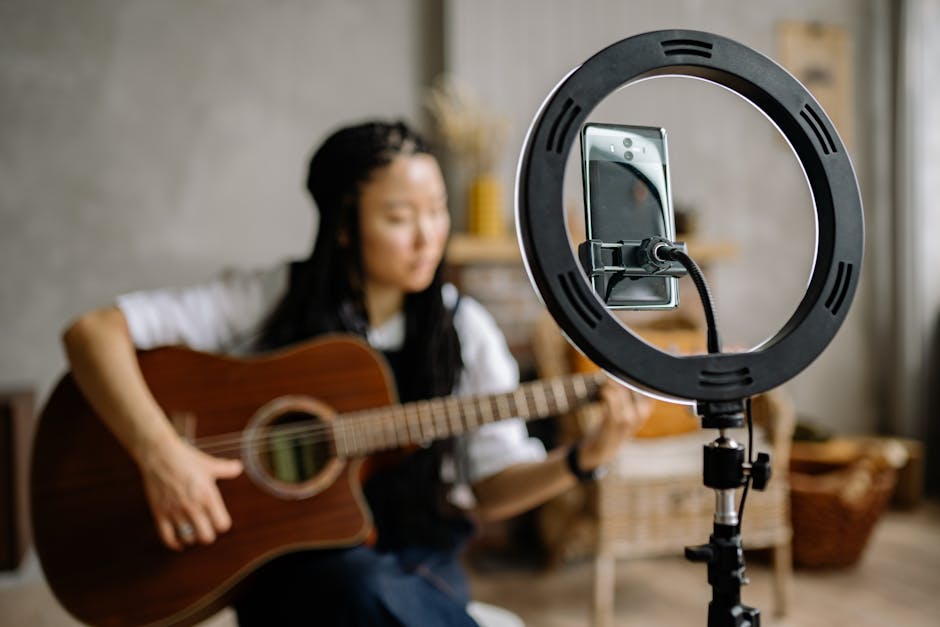Music, a universal language transcending geographical boundaries and cultural nuances, is undergoing a profound transformation. This evolution is inextricably linked to the ascendance of social media platforms, which are not just tools for sharing music but integral components of the artistic process itself. Will social media sculpt the future of music and entertainment, or will existing structures remain dominant? The answer, likely, lies in a complex interplay of influence.
Social media’s impact on music is multifaceted, touching upon every facet of the creative process, from composition and production to distribution and consumption. Consider the rise of independent artists. Previously, emerging talent often faced significant barriers to reaching a wider audience. Record labels, with their substantial resources, controlled the levers of exposure. But now, artists can leverage platforms like TikTok, Instagram, and YouTube to directly connect with fans. This democratization of access allows for a more immediate and personalized connection. Fans are no longer passive recipients but active participants in the creative journey.
A particularly telling example of this is the viral phenomenon of “soundtracks.” These aren’t just incidental pieces accompanying video trends; they are carefully curated, often uniquely created, tracks that become instantly recognizable and widely shared. This symbiotic relationship, where music and visuals intertwine, fuels a dynamic feedback loop, often propelling new artists into the spotlight. This democratization of musical exposure, driven by social media, creates a fertile ground for novel sounds, aesthetics, and artistic voices.
However, this shift in power dynamics isn’t without its downsides. The constant stream of content necessitates a rapid-fire approach to music creation. Artists might be pressured to produce material tailored to specific trends and platforms, potentially compromising artistic integrity. Furthermore, the constant need for engagement can be overwhelming, fostering an environment of fleeting trends and ephemeral popularity.
Beyond the artist-fan dynamic, social media profoundly impacts music distribution. Traditional methods, such as record store releases and radio broadcasts, are now supplemented, and sometimes supplanted, by digital streaming and social media sharing. This change has led to a significant shift in revenue models. Streaming services are a major source of income for artists, but the issue of compensation remains a complex debate. Artists, even popular ones, often find themselves grappling with a struggle between visibility and equitable reward. The economics of social media-driven music distribution continue to evolve, creating ongoing challenges.
Moreover, the algorithm itself has become a crucial player in shaping the music landscape. These complex systems, determining what content appears to users, heavily influence which songs gain traction and which fade into obscurity. This power to amplify certain sounds while suppressing others creates an inherent bias, potentially fostering a homogenization of musical styles. The curated nature of social media feeds might stifle the exploration of more obscure or experimental genres.
Beyond the immediate impact on popularity and exposure, social media is also transforming how music is consumed. Interactive elements, like live streams and virtual concerts, are revolutionizing the concert experience, blurring the lines between the physical and the digital. Music lovers can connect and share experiences with a global community in unprecedented ways. The ability to interact directly with artists, participating in creative dialogues, is a significant new dimension of musical engagement. This newfound closeness between artist and audience can be a powerful force in cultivating a deeper connection to music.
Another significant consideration is the impact on originality and authenticity. The ease of sharing and sampling on social media platforms can foster a sense of remix culture, potentially blurring the lines between originality and imitation. While this can lead to creative collaborations, it can also present challenges to the concept of intellectual property and the value of unique creative expression.
Nevertheless, the influence of social media on the future of music is undeniably significant. Artists, labels, and music enthusiasts are all grappling with the new realities. Artists are finding creative pathways to navigate the algorithmic landscape, while labels are adapting their strategies to harness the potential of social media marketing. Fans, too, are discovering new ways to engage with music and connect with each other. Ultimately, social media is not simply a platform but a catalyst, accelerating the transformation of the musical landscape. It’s a powerful tool, both a boon and a challenge, capable of shaping the very future of music and entertainment. The future will be shaped not by technology alone, but by the creativity and adaptations of artists, producers, and fans, all navigating the new musical terrain.
